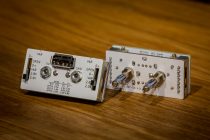Many gadgets and tools nowadays run from 5 V and incorporate an USB port for that purpose. When developing those devices powering them from a bench power supply is usual very handy as current can be easy monitored and limited. For that purpose I wanted to create a small adapter which plugs into my bench power supplies and offers an USB type A plug.
The power and current a device may draw from an USB port is limited and follows complex rules depending on the state of USB enumeration. Many devices ignore those rules and just draw 100 mA or 500 mA independently of USB enumerate state. This works for most power providing devices and almost all USB chargers/power supplies. If more current is needed the power supply needs to signal extra capability to the device. As most USB chargers are rather dump a simple solution, or to be exact many simple solutions were invented. The device that wants to draw current checks the status of the D+ and D- signal lines immediately after attach. Continue reading
